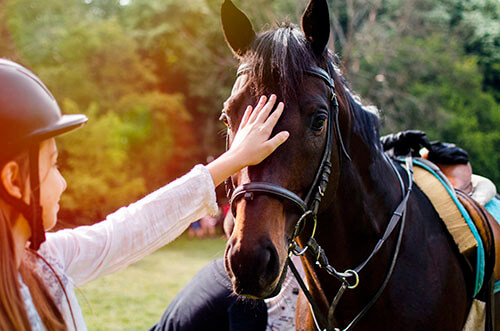Equine Nutrition for Varying Recovery Times
Oct 05, 2020

Written by Dr. Dana Tomlinson with Zinpro Corporation
Recovery time will depend on the level of exercise, conditioning of the horse and amount of muscle fatigue that has occurred. In many situations, a horse can be fully recovered within 24 to 48 hours. However, when considering horses such as three-day eventing horses or elite show jumping horses, these elite athletes have a heavy workload. Research shows it can take more than five days for these horses to fully recover. Just think of it like the recovery for an individual who ran a 5k race versus a half marathon versus an Iron Man competition — the recovery times will vary significantly.
When it comes to proper equine nutrition to impact a horse’s recovery time, first ask yourself, “Am I conditioning my horse for the level of performance I expect?” And then, “What is that level, and am I providing my horse the right fuel and nutrients to perform its best and to achieve full recovery?” Then ensure your horse is fed the right nutritional balance with plenty of water and recovery time.
For more information on equine nutrition and horse muscle recovery, stop by your local Co-op or visit American Association of Equine Practitioners for information on general horse nutrition and exercise.
There’s also good information from the University of Minnesota Veterinary School on exertional rhabdomyolysis — it’s very informative to help you better understand what’s happening if you have a horse that’s tying up or cramping. You can also visit our equine nutrition page to learn more about the benefits of trace minerals for horses.
Recovery time will depend on the level of exercise, conditioning of the horse and amount of muscle fatigue that has occurred. In many situations, a horse can be fully recovered within 24 to 48 hours. However, when considering horses such as three-day eventing horses or elite show jumping horses, these elite athletes have a heavy workload. Research shows it can take more than five days for these horses to fully recover. Just think of it like the recovery for an individual who ran a 5k race versus a half marathon versus an Iron Man competition — the recovery times will vary significantly.
When it comes to proper equine nutrition to impact a horse’s recovery time, first ask yourself, “Am I conditioning my horse for the level of performance I expect?” And then, “What is that level, and am I providing my horse the right fuel and nutrients to perform its best and to achieve full recovery?” Then ensure your horse is fed the right nutritional balance with plenty of water and recovery time.
For more information on equine nutrition and horse muscle recovery, stop by your local Co-op or visit American Association of Equine Practitioners for information on general horse nutrition and exercise.
There’s also good information from the University of Minnesota Veterinary School on exertional rhabdomyolysis — it’s very informative to help you better understand what’s happening if you have a horse that’s tying up or cramping. You can also visit our equine nutrition page to learn more about the benefits of trace minerals for horses.